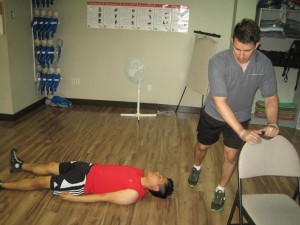Epilepsy is a brain disorder that causes individuals afflicted with it to have recurrent seizures. Epileptic seizures or epilepsy happen when the electrical activity of groups of neurons become disrupted. This means that the communication between nerve cells becomes disturbed resulting to abnormal signals being sent from the neurons. As a consequence, individuals who suffer from epilepsy often feel strange sensations or are said to experience bouts of irrational behavior.
Although seizures are quite common, not all seizures are caused by epilepsy. To diagnose epilepsy, there has to be at least two unprovoked seizures. A seizure is not called epilepsy if it is correctable or if it happens only once. Moreover, the onset of disease can occur at any age, with no age preference. Every year, approximately 30% of the 180,000 new cases reported are children. Fortunately, children can still outgrow this disease with age.
When a casualty suffers from a bout of epilepsy, it is often not classified as a medical emergency. However, if the seizure is experienced for the first time, lasts for more than five minutes or a second one occurs within minutes, it is best to call for emergency medical assistance. Learn how to manage a casualty of epilepsy and when to call for medical services by taking First Aid Courses and CPR Classes.
Types of Epilepsy
There are three types of epilepsy. All three types lead to brain injury, however, they are caused by different reasons.
Symptomatic or Cryptogenic Epilepsy
- Of known cause, usually inherited
- Two types: Generalized and Partial
Idiopathic Epilepsy
- Of unknown cause
- Two types: Generalized and Partial
Signs and Symptoms of Epilepsy
An epilepsy attack may present with some of the following signs and symptoms:
- Violent muscle spasms or uncontrollable twitching and jerking of the limbs and the face
- Foaming in the mouth
- Momentary confusion
- Spells of staring
- Loss of consciousness
First Aid Management for Epilepsy
The importance of giving first aid to a person suffering from an epileptic seizure is to avoid more injuries from befalling the individual. The following are guidelines on what a rescuer can do when a casualty is suffering from a seizure:

- Do not attempt to restrain the casualty during an attack as doing so may lead to bone and soft tissue damage. Moreover, do not move the casualty to another location.
- Remove any sharp objects within the vicinity of the casualty to protect the person from getting an injury. Likewise, move any furniture to avoid injuries.
- Take extra precaution in removing electrical appliances to avoid burning or scalding.
- If the casualty is near any hard surface, pad the area with pillows or clothing.
- Try to carefully place a soft and flat material under the head of the casualty, such as a jacket.
- If the casualty is wearing eyeglasses, be careful in removing it.
- If there is any tight clothing around the neck, be gentle in loosening it.
- Do not put anything inside the casualty’s mouth.
- Do not leave the casualty alone at all times. If there are bystanders present nearby, ask them to make space for the casualty.
Epilepsy is a disorder of the brain that leads to its casualties suffering from multiple seizures in their lifetime. Epilepsy leads to uncontrollable twitching and jerking off of the limbs and face and may even result to unconsciousness.
Online Sources:
http://www.webmd.com/epilepsy/guide/types-epilepsy
